At The Grossman Law Firm, our California trust litigation attorneys step in when trustees break trust—literally and legally. For over 20 years, we’ve represented clients in inheritance disputes, trust and estate conflicts, and breach of fiduciary duty claims across the state. We understand how painful it is to suspect something’s wrong and not know where to turn. This is personal, and we treat it that way.
California
Trust Litigation Lawyers
When grief and inheritance collide, the truth matters more than ever.
What Is Trust Litigation?
Trust litigation is a lawsuit involving a trust document as an estate planning document.
These disputes often surface after the death of a loved one and typically involve beneficiaries and trustees who find themselves at odds. Whether it’s a lack of communication, suspected misconduct, or outright abuse of power, trust litigation is the legal process used to resolve these conflicts and enforce accountability.
Common reasons people pursue trust litigation include:
- Forcing a trustee to provide a copy of the trust
- Demanding transparency or financial records
- Recovering misused property
- Suspending or removing a trustee
- Appointing a replacement or temporary trustee
- Seeking damages for wrongdoing
These cases are about more than money. They’re about justice, truth, and making sure a loved one’s final wishes are honored. If something feels wrong, it probably is. Trust litigation is how you get answers and hold people accountable.
How We Handle Trust Disputes
No family plans to end up in court over a trust. But when communication breaks down, or someone takes advantage, we step in.
Here’s what we do:
- Review the trust and identify red flags
- Investigate trustee conduct and financial activity
- File petitions to compel action, disclosure, or removal
- Negotiate or litigate to protect your rightful share
- Keep you informed every step of the way
Whether it’s a lack of communication, trustee misconduct, or outright abuse of power, trust litigation is the legal process used to resolve these conflicts and enforce accountability. Contesting a trust in California can be complicated—but it’s often necessary to protect your loved one’s legacy.
Our Simple 4-Step Process
We can’t help unless you reach out. Call us or fill out the contact form to tell us what’s going on. You’ll hear back from us within one business day, often sooner.
Real Support, Real Results
The Grossman Law Firm was built for hard cases. We don’t sugarcoat things—we assess your situation, explain your options, and take action. If your case has potential, we’ll tell you how we can help. If it doesn’t, we’ll point you in the right direction.
Our legal team represents:
- Beneficiaries in need of a California inheritance dispute lawyer
- Heirs seeking to challenge or contest a trust they believe was changed unfairly
- Trustees or executors facing trust and estate litigation who need clear legal guidance
Our clients deserve transparency and justice. Every case we take on gets our full attention. Every client gets honest answers and determined advocacy.
Why Choose The Grossman Law Firm
Focused on Trust and Probate Litigation
This is our core. We know it inside and out.
Clear, Honest Advice
We’ll tell you what’s real, not what you want to hear.
Trial-Tested
We litigate, not just negotiate. When a fight is necessary, we’re ready.
20+ Years of Experience
Trusted across California for complex trust and inheritance disputes.
You’re Not Just a Case
We know this is personal. We treat it that way.

Frequently Asked Questions
What is a trustee required to do after someone passes away?
They must notify beneficiaries and heirs, provide a copy of the trust, and begin managing trust property according to its terms. Transparency isn’t optional, it’s the law.
How do I get a copy of a trust?
If the settlor has died, all beneficiaries and legal heirs are entitled to a copy. If the trustee won’t provide it, we can file a legal demand or take the matter to court.
Can I sue a trustee for mismanagement or fraud?
Yes. If a trustee breaches their duties—whether by hiding assets, self-dealing, or failing to follow the trust terms—you may be able to sue for damages or removal.
What if the trustee threatens to disinherit me for asking questions?
That’s a huge red flag. You have a legal right to ask questions. If you’re being intimidated, it’s time to talk to a lawyer immediately.
How much does trust litigation cost?
The cost of trust litigation depends on how long it takes to settle the matter by mutual agreement or court trial. It also depends on whether you’re a beneficiary or trustee, and whether the case is hourly or contingency-based. We’ll walk you through all the options in your consultation.
Is there a deadline to file a trust litigation case?
Yes. In California, deadlines vary depending on the issue, sometimes as short as 120 days after notice. Acting quickly protects your rights.
How can a trust litigation attorney help?
A trust litigation attorney can step in when things go wrong; whether a trustee is hiding information, mismanaging assets, or violating the terms of the trust. We investigate, explain your rights, and take legal action when needed. Most importantly, we help you make informed decisions and fight for what’s fair.
What are common causes for trust litigation?
Trust litigation often arises when the trust doesn’t reflect the settlor’s true intentions, assets appear to be missing, or the trustee fails to carry out their duties.
What are the steps involved in trust litigation?
Trust litigation typically begins when an heir or beneficiary suspects wrongdoing by the trustee. Give our team at The Grossman Law Firm a call. If we work together, as your legal team, we will investigate the facts, file a petition with the probate court, and pursue your case through hearings, discovery, and trial if needed. The Grossman Law Firm guides you through each step until your inheritance is protected.
What are the alternatives to trust litigation?
When a trust is being handled properly (meaning the trustee is transparent, all assets are accounted for, and the document reflects the settlor’s intentions) litigation can often be avoided. In some cases, disputes may be resolved through informal negotiation or mediation, rather than going to court.
How do I find a trust litigation attorney near me?
Start by calling our office or filling out the Get Help Now form for a free case evaluation. If your matter falls within our practice areas and we believe we can assist, we’ll schedule a free phone consultation for you to discuss your case with Attorney Scott Grossman.
Can I represent myself in trust litigation?
It’s legally possible to represent yourself, but probate court filings must meet strict legal standards and follow county-specific rules. Many self-represented filings are rejected. Your initial filing also sets the tone for your entire case. Hiring an experienced trust litigation attorney helps you avoid costly mistakes.
What documents do I need for a trust litigation case?
Most trust litigation cases involve an irrevocable trust document. Additional helpful records might include accountings, bank statements, and correspondence with the trustee. If you haven’t received a copy of the trust or are unsure what applies to your case, contact our office to learn what we’ll need to review.
What is the success rate of The Grossman Law Firm’s trust cases?
We have a 95% success rate in the trust litigation cases we take. While every case is different, our track record reflects our commitment to helping clients get the outcome they deserve.
Contact Our California Trust Litigation Team Today
Your loved one trusted someone to carry out their wishes. If that trust has been broken, you don’t have to accept it. Let us help you fight for what’s rightfully yours.
We’ll listen. We’ll explain. And if your case is worth pursuing, we’ll help you take action. Contact us today.
Our Intake Specialists can evaluate your case to assess your situation at no cost to you. Qualifying cases will be scheduled for a Free Phone Consultation with Attorney Scott Grossman.





